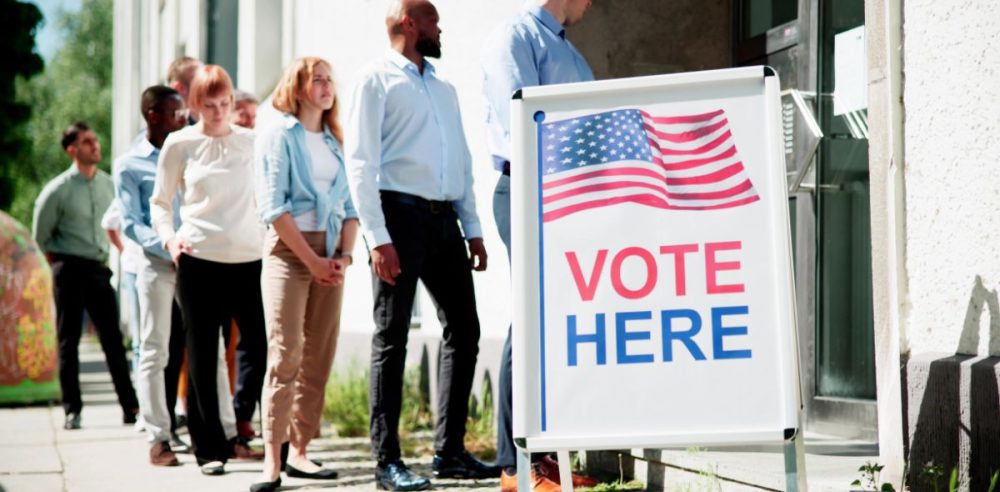The United States holds elections on the Tuesday following the first Monday in November. This practice was established in 1845, when society and voting needs significantly differed.
Originally, a weekday voting schedule accommodated farmers who needed weekends for church and Wednesdays for markets, WFAA reported.
Voting on Tuesday gave farmers enough time to travel without conflicting with Sunday observances, an arrangement that suited 19th-century America’s largely rural population.
Today, however, voting on a weekday presents challenges for many Americans. Unlike in 1845, most voters have workplace responsibilities or other obligations on Election Day, leading to scheduling conflicts.
A Statista survey reported that 13.1% of U.S. adults cited work or schedule conflicts as their main reason for not voting in 2020.
For many, finding time to vote between work hours means early mornings, late evenings, or sacrificing lunch breaks, all of which can be a deterrent.
Some states have designated Election Day as a state holiday.
Illinois, West Virginia, Maryland, Hawaii, and New York require voters to be given time off to cast their ballots.
Meanwhile, states like Colorado and California mandate employers provide paid time off to vote but have not made Election Day a full state holiday.
These accommodations vary and are far from uniform across the country.
Advocates for a federal holiday argue that making Election Day a paid day off would boost voter turnout. They point out that countries like Israel and South Korea already use election-day holidays to encourage voting.
Pew Research has shown that two-thirds of U.S. adults support a federal holiday for voting, a sentiment that has increased over recent years.
President Joe Biden and Vice President Kamala Harris have also publicly supported the idea, as have several legislators pushing for reforms like the Freedom to Vote Act.
Opponents, however, argue that a holiday could disrupt essential services and even worsen voter access in certain areas.
Some suggest expanding early voting and mail-in voting options as an alternative, noting that nearly 70% of voters cast ballots before Election Day during the 2020 pandemic election.
Corporate America is also joining the push, with companies like Patagonia, Walmart, and Starbucks pledging to give employees time to vote. This shows that flexible policies may be one route to solving voter access issues.
Historical reasoning has long outlived its practicality regarding Election Day. While tradition holds strong, changing demographics and the evolving nature of work may soon push lawmakers and businesses to reconsider how best to support voters.
This article was written with the assistance of artificial intelligence.


